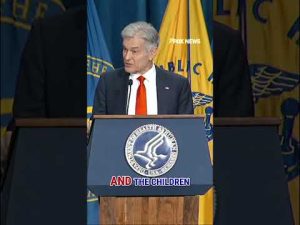In today’s world, politics often feels more like a high school drama than the grand chess game portrayed by Hollywood. Remember the movie Mean Girls? It’s a fitting comparison for how today’s political landscape sometimes unfolds. The spectacle of politicians jockeying for power is reminiscent of the petty squabbles and whispered gossip in high school hallways. Some might find it entertaining, while others might find it deeply concerning, especially when these antics take center stage during pivotal moments like Pride Month.
During Pride Month, when there’s supposed to be a celebration of inclusivity and unity, seeing political figures caught up in personal battles feels particularly tone-deaf. Instead of focusing on meaningful discourse, it’s as if they’re flipping through the pages of a burn book, judging each other like characters in a high school drama. It’s a reminder that, despite the serious nature of their roles, many politicians get sidetracked by personal vendettas and ego-driven confrontations, much to the public’s dismay.
What this demonstrates is a profound disconnect between political theater and genuine governance. Many citizens worry about their everyday needs—jobs, health, education—yet find their representatives embroiled in petty squabbles. As these political figures engage in what seems like a soap opera, the real issues that concern the public often get sidelined. This kind of behavior doesn’t inspire confidence in leadership; rather, it reveals a lack of focus on what truly matters to constituents.
The article’s critique should focus, however, on the mistake of taking political machinations too seriously. By comparing politics to the comedy inherent in Mean Girls, it’s clear that what drives many political stories is not brilliant strategy but human folly. Anyone who expects masterful 4D chess should adjust their expectations. Politics often operates more like a chaotic sandbox of personalities clashing than a methodical board game.
In the end, the lesson here is about managing expectations and seeing through the noise. By not getting caught up in the drama, citizens can focus on holding politicians accountable for real plans and policies. It’s not about dismissing the whole game; rather, it’s about acknowledging that, beneath the theatrics, thoughtful governance is what truly counts. Embracing humor in the face of such spectacles ensures that people don’t lose sight of what’s important amidst the chaos.







